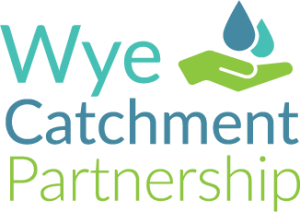CaSTCo is about ensuring communities are included in the collection and sharing of data, to improve understanding and develop the management of our rivers and their catchments.
CaSTCo is:
- A £7.1m, 3-year project funded by the OFWAT Innovation Fund
- A highly collaborative project, bringing together 30+ partners (including 12 water companies)
- Creating the first national, standardised catchment framework that integrates monitoring and data management, seeking to provide one single source of information
- About bringing people together, improving trust, transparency, data sharing and collaboration across all actors in the catchment
WUF’s Role
Our work is taking place in the Usk catchment with the Crai as the ‘Demonstration Area’ (Demo+). There are 4 ‘Pillars’ of activity
- Farm Interventions
- Citizen Science
- Monitoring
- Data recording
Pillar 1 – Farm Interventions
We are working with 27 farmers in the Crai catchment to increase water infiltration and reduce flood risk. This will enable us to map, soil sample and recommend potential natural flood management (NFM) interventions.
The Habitat team will be fencing, creating water points and ‘pleaching’ hazel into the river to create an ideal habitat for wildlife. In conjunction with this the Natural Capital Team are conducting infiltration baseline tests to see how the soil copes with rain fall. This will enable us to produce hydrological mapping that shows how water flow affects landscapes, farms and the rivers – this mapping is then ground truthed. Soil analysing will be completed using Visual Assessment Soil Structure (VESS) compaction scores, and nutrient testing for Phosphate (P), Potassium(K), Magnesium (Mg), Organic Matter (OM) and pH.
Pillar 2 – Citizen Science
The aim is to empower Citizen Scientists (CitSci) to collect and share data which can be used by organisations such as Natural Resources Wales (NRW), The Environmental Agency (EA) and Dwyr Cymru/ Welsh Water(DCWW). These Citizen Scientists are from a combination of WUF, Save The River Usk (STRU) and Gwent Wildlife Trust (GWT) – with over 1000 STRU samples having been taken already. Our new CitSci lead is in post and will be recruiting, training and working with our volunteers.
Pillar 3 – Monitoring
Collecting true and clean data is essential to the CaSTCo project and our findings will also provide a benchmark for the CitSci data. To this end we have 3 Analysers collecting data on Phosphates in the Usk, plus 3 Sondes will be gathering data on Electrical Conductivity, Temp, Turbidity, Nitrate, Dissolved oxygen, Ammonium, Ph, and Absolute depth. Water samples will be taken from the Crai and Hydfer and sent to the lab pre, and post, on-farm interventions.
Additionally, we have plans to carry out water sampling for Fipronil, a popular flea treatment for dogs, as a recent report highlighted its potentially devastating impact on river invertebrates. Other areas of monitoring will be Allochthonous wash out, Land Drain monitoring and Phosphate loading reports on farms.
Pillar 4 – Data collection
All the data collected from farms, WUF lab samples and Citizen Scientists will be fed into an online data hub which is available for everyone to see. It is important that we make it easy for our Citizen Scientists to see the data they’ve collected, and that the work they’re doing is influencing change.
Final thoughts
The intent is that by collaborating with the Rivers’ Trusts, and the many other organisations involved in CaSTCo, we can influence NRW, EA and government policy. We aim to rebuild trust and increase confidence of local people, and through community involvement and transparency inspire public value of rivers and water.
To find out more contact Sian Mercer, Specials Project Manager at The Wye & Usk Foundation, on sian.mercer@wyeuskfoundation.org
If you are interested in becoming a Citizen Scientist on the Usk please contact Helen Pruett on helen@wyeuskfoundation.org and she can let you know about this and other volunteering opportunities.
The project is being delivered through The Rivers Trust, to learn more click here https://theriverstrust.org/our-work/our-projects/castco-catchment-systems-thinking-cooperative



